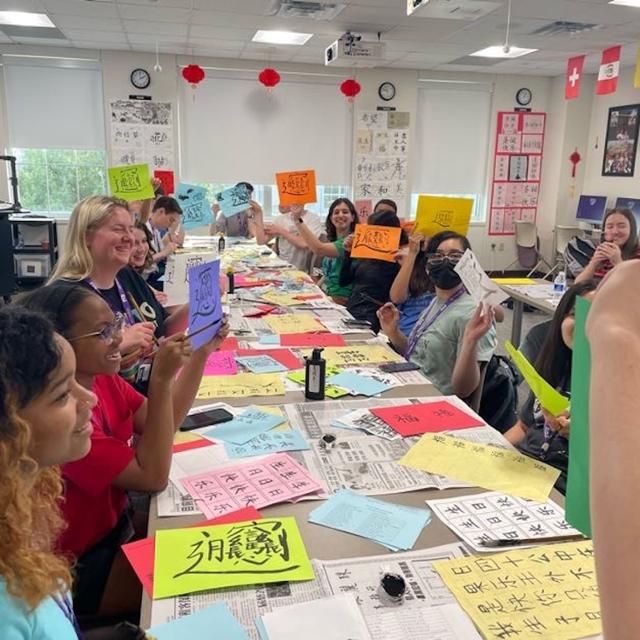
TCU Receives Grant to Promote Critical Languages, Education, National Security
If you know what Xiàlìngyíng means, read no further.
It’s Chinese for summer camp – what TCU will be hosting next June when 24 high school
and university students from across the country attend a two-week residential program.
“Campers” will be completely immersed in Chinese, with days and nights filled with
activities, from the classroom to field trips.
The “Chinese for the Professions: Navigating Linguistic and Cultural Differences”
camp is June 16-27, 2025, and free (not including travel), thanks to a STARTALK grant.
This is the second time TCU’s Department of Modern Language Studies has received the
prestigious grant and hosted the program. Muriel Cormican, associate dean and professor
of German, and Guangyan Chen, associate professor of Chinese, co-wrote and submitted
the grant. Together they plan, organize, coordinate and implement the TCU elements.
“We plan to carry over some of the same activities that we had in 2022 as STARTALK
representatives were very impressed with what we offered,” Cormican said. “It will
be intense, with students expected to speak Chinese throughout. We end the two weeks
with a speech contest in Chinese that really helps build their confidence.”
While there is a lot of work with some testing, Cormican said there’s also fun planned,
with typical camp experiences, like a talent show and excursions.
The program takes a lot of work and is a labor of love, Cormican added.
“We focus on promoting language learning, something that takes a real commitment,”
she said. “It’s a concept TCU supports as we educate students to be ethical global
citizens.”
Applications are being accepted now through Feb. 20, 2025, for those who reach the
ACTFL level of novice-high proficiency. There is a pre-camp outreach component and
a follow-up yearlong outreach component designed to advance students’ Chinese language
proficiency and intercultural competence.
STARTALK grants currently support programs offered in Chinese and Russian with goals
to:
- Increase the number of students enrolled in the study of critical languages.
- Increase the number of highly effective critical language teachers in the U.S.
- Increase the number of highly effective materials and curricula available to teachers and students of critical need languages.
- Enhance workforce development in the federal government to meet national security needs through the study of critical languages.
